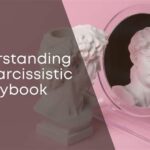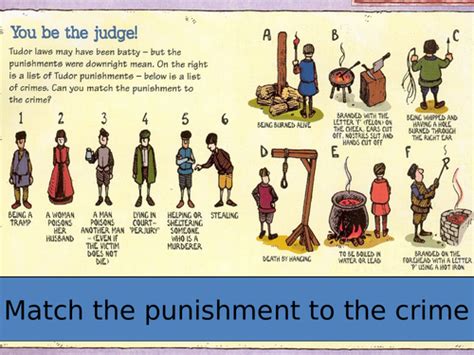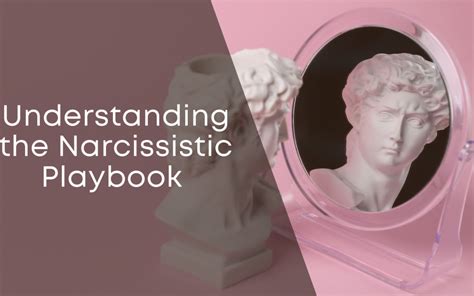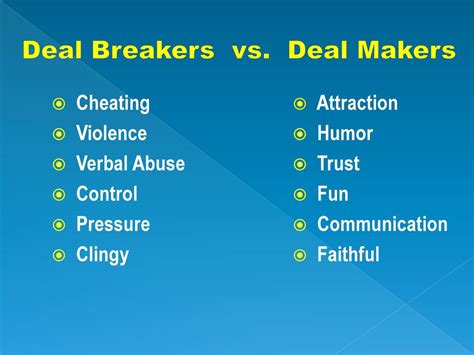
Dating app users, beware: certain words and phrases in your profile can trigger an immediate “left swipe,” signaling rejection, according to recent insights. Overused clichés, vague descriptions, and insincere attempts at humor are common pitfalls that can derail your chances of making a meaningful connection.
The quest for love in the digital age is fraught with peril, and your dating profile is your first, and sometimes only, chance to make a lasting impression. But a minefield of linguistic blunders can turn potential matches away, sending you spiraling into the abyss of digital solitude. According to a recent article, seemingly innocuous words and phrases can serve as instant turn-offs. Identifying and avoiding these linguistic landmines is crucial for anyone hoping to navigate the often-turbulent waters of online dating successfully.
One of the most significant issues highlighted is the pervasive use of clichés. Phrases such as “work hard, play hard,” “live, laugh, love,” and “looking for my partner in crime” have become so commonplace that they’ve lost all meaning. These tired expressions signal a lack of originality and effort, suggesting that the profile creator couldn’t be bothered to come up with something more personal or unique. As the article notes, “These phrases have become so overused that they no longer convey any genuine personality or individuality.” Instead, they blend into the background noise of countless other profiles, making it difficult to stand out from the crowd.
Vague descriptions are another common pitfall. Profiles that describe the user as “easygoing,” “fun-loving,” or “adventurous” without providing any specific examples fail to capture the imagination. What does “easygoing” really mean? Does it mean you’re content to sit at home and watch TV, or does it mean you’re willing to try new things and go with the flow? Similarly, “adventurous” could mean anything from hiking in the mountains to trying a new restaurant. Without concrete details, these adjectives are meaningless and fail to paint a clear picture of who you are and what you’re looking for. “Specificity is key,” the article emphasizes. “Instead of saying you’re ‘adventurous,’ describe a specific adventure you’ve enjoyed.”
Insincere attempts at humor can also backfire. While a well-placed joke can be a great way to break the ice and show off your personality, forced or generic humor often falls flat. Sarcastic or self-deprecating remarks can come across as insecure or negative, while overly cheesy pick-up lines are generally seen as unoriginal and off-putting. The article suggests that humor should be genuine and reflect your true personality. “If you’re not naturally funny, don’t try to force it,” it advises. “Instead, focus on showcasing your other qualities and interests.”
Beyond specific words and phrases, the overall tone and presentation of your profile also matter. Profiles that are too generic, too focused on physical appearance, or too demanding can all send the wrong message. A profile that consists solely of selfies, for example, may suggest that you’re narcissistic or superficial. Similarly, a profile that lists a long list of requirements for a potential partner can come across as judgmental or unrealistic. The key is to strike a balance between showcasing your best qualities and being open and approachable.
One of the biggest mistakes people make is failing to proofread their profiles carefully. Typos, grammatical errors, and awkward phrasing can all create a negative impression. They suggest that you’re careless, uneducated, or simply not serious about finding a partner. “Always proofread your profile before posting it,” the article advises. “Ask a friend to read it over as well, as they may catch mistakes that you missed.”
Another common mistake is being too negative or critical. Complaining about past relationships, criticizing other people’s profiles, or expressing cynicism about dating in general can all be major turn-offs. People are generally drawn to positive and optimistic individuals, so it’s important to present yourself in the best possible light. “Focus on what you’re looking for, not what you’re trying to avoid,” the article suggests. “Highlight your positive qualities and interests, and avoid dwelling on negative experiences.”
The article also touches on the importance of authenticity. Trying to be someone you’re not or exaggerating your accomplishments is a surefire way to attract the wrong kind of attention. Eventually, your true self will be revealed, and your potential matches will feel misled or betrayed. “Be yourself,” the article advises. “Don’t try to be someone you think others want you to be. The right person will appreciate you for who you are.”
Furthermore, experts emphasize the value of showcasing vulnerability and genuine emotion in dating profiles. Sharing personal anecdotes, expressing heartfelt values, and describing meaningful experiences can create a sense of connection and intimacy. This approach humanizes the profile, making the person behind it more relatable and appealing. However, it’s crucial to maintain a balance and avoid oversharing, which can come across as overly dramatic or attention-seeking. The key is to be authentic and open while respecting personal boundaries.
Another important aspect is the selection of profile photos. Photos that are outdated, blurry, or unflattering can detract from your overall appeal. Choose photos that are recent, clear, and representative of your best self. Include a variety of photos that showcase your personality, interests, and lifestyle. A good mix might include a headshot, a full-body shot, and a photo of you engaging in an activity you enjoy. Avoid using filters or editing your photos excessively, as this can create an unrealistic impression.
Moreover, it’s advisable to avoid using group photos as your primary profile picture. Group photos can be confusing, as potential matches may have difficulty identifying which person you are. If you do use a group photo, make sure it’s clear which person you are, and that you’re the most prominent and attractive person in the photo.
In addition to avoiding common pitfalls, there are also several things you can do to make your profile more appealing. One of the most important is to be specific about your interests and hobbies. Instead of saying you “enjoy traveling,” describe a specific trip you’ve taken or a place you’d like to visit. Instead of saying you “like to read,” mention a specific book or author you enjoy. The more details you provide, the easier it will be for potential matches to find common ground and start a conversation.
Another way to make your profile more appealing is to ask a friend for feedback. A fresh pair of eyes can often spot mistakes or areas for improvement that you might have missed. Ask your friend to be honest and constructive, and be open to their suggestions. They may have insights into how you’re perceived by others that you’re not aware of.
The digital dating landscape is ever-evolving, and the strategies that worked yesterday may not work today. Staying informed about current trends and best practices is essential for anyone hoping to succeed in online dating. Regularly update your profile, experiment with different approaches, and be willing to adapt your strategy based on the feedback you receive.
Furthermore, it’s essential to be patient and persistent. Finding the right match can take time and effort, so don’t get discouraged if you don’t find success immediately. Keep refining your profile, engaging with potential matches, and maintaining a positive attitude. With persistence and a little bit of luck, you’ll eventually find someone who appreciates you for who you are.
To conclude, crafting a successful dating profile requires careful attention to detail, a willingness to be authentic, and a commitment to avoiding common pitfalls. By avoiding clichés, being specific about your interests, showcasing your personality, and presenting yourself in a positive light, you can significantly increase your chances of finding a meaningful connection. The key is to treat your profile as a reflection of your true self, and to put in the effort to make it the best possible representation of who you are.
Frequently Asked Questions (FAQs):
1. What are some examples of clichés to avoid in a dating profile?
Clichés to avoid include phrases like “work hard, play hard,” “live, laugh, love,” “looking for my partner in crime,” “I’m just looking for someone to Netflix and chill with,” “fluent in sarcasm,” and “dog mom/dad.” These phrases are overused and don’t convey genuine personality. “These phrases have become so overused that they no longer convey any genuine personality or individuality,” according to the original article.
2. How can I make my dating profile more specific and less vague?
Instead of saying you’re “adventurous,” describe a specific adventure you’ve enjoyed, such as hiking the Inca Trail or scuba diving in the Great Barrier Reef. Instead of saying you “like to travel,” mention a specific place you’ve visited or a destination you’re dreaming of exploring. Provide concrete details that paint a clear picture of who you are and what you’re looking for. For example, you can say: “I love exploring new hiking trails on the weekends and trying out local coffee shops. My dream vacation is backpacking through Southeast Asia.”
3. What kind of humor works best in a dating profile?
Humor should be genuine and reflect your true personality. Avoid forced or generic jokes, sarcastic remarks, and cheesy pick-up lines. Instead, try to incorporate humor that is relevant to your interests or experiences. Self-deprecating humor can work if done sparingly and with genuine humility, but avoid being overly negative or critical of yourself. Share a funny anecdote or observation about your life, or poke fun at your own quirks and eccentricities. The key is to make people laugh without being offensive or off-putting.
4. How important are photos in a dating profile, and what kind of photos should I include?
Photos are extremely important in a dating profile, as they are often the first thing people notice. Choose photos that are recent, clear, and representative of your best self. Include a variety of photos that showcase your personality, interests, and lifestyle. A good mix might include a headshot, a full-body shot, and a photo of you engaging in an activity you enjoy. Avoid using filters or editing your photos excessively, as this can create an unrealistic impression. It’s also advisable to avoid using group photos as your primary profile picture, as potential matches may have difficulty identifying which person you are.
5. What should I do if I’m not getting the results I want from my dating profile?
If you’re not getting the results you want from your dating profile, don’t get discouraged. Take a step back and evaluate your profile critically. Are you using clichés or vague descriptions? Are your photos flattering and representative of who you are? Are you being authentic and genuine? Ask a friend for feedback, and be open to their suggestions. Experiment with different approaches, and be willing to adapt your strategy based on the feedback you receive. The digital dating landscape is ever-evolving, so staying informed about current trends and best practices is essential. Remember that finding the right match can take time and effort, so be patient and persistent.
Expanded Analysis:
The article “Dating Profile Word Choice: Why It’s an Instant Left Swipe!” serves as a crucial guide for anyone navigating the complexities of online dating. It underscores that in the digital realm of romance, where first impressions are often formed within seconds, the language used in a dating profile can be the deciding factor between a potential connection and immediate rejection.
The pervasiveness of clichés is a recurring theme in discussions about online dating profiles. These phrases, once novel and perhaps even charming, have become so ubiquitous that they now function as red flags, signaling a lack of originality and effort. When a user encounters “work hard, play hard” for the hundredth time, it conveys not a dynamic lifestyle but rather a template approach to self-presentation. The repetition diminishes the impact, turning what was intended to be a positive attribute into a meaningless noise. This highlights the importance of crafting a profile that genuinely reflects individual experiences and perspectives, rather than relying on tired tropes.
Vagueness is another significant issue. While aiming for broad appeal might seem like a logical strategy, it often results in profiles that are bland and unmemorable. Describing oneself as “easygoing” or “fun-loving” without providing specific examples fails to create a tangible impression. What does “easygoing” actually look like in practice? Does it mean being open to spontaneous adventures, or does it imply a preference for low-key evenings at home? Without concrete details, these adjectives become empty vessels, failing to communicate any meaningful information about the user’s personality or lifestyle.
The article emphasizes the need for specificity, urging users to replace vague descriptions with concrete examples and anecdotes. Instead of simply stating “I like to travel,” describe a memorable trip you’ve taken or a destination you’re eager to explore. Share a specific hobby you enjoy, a book you’ve recently read, or a movie that resonated with you. These details not only make your profile more engaging but also provide potential matches with conversation starters and opportunities to find common ground.
Humor is a delicate balancing act in the world of online dating. While a well-placed joke can be a great way to break the ice and showcase your personality, forced or generic humor often falls flat. Sarcasm, in particular, can be risky, as it can easily be misinterpreted in text-based communication. What might seem witty and clever in person can come across as cynical or negative online. The article suggests that humor should be genuine and authentic, reflecting your natural sense of humor rather than trying to force something that doesn’t come naturally.
The importance of authenticity is a recurring theme in discussions about online dating. Trying to be someone you’re not or exaggerating your accomplishments is a surefire way to attract the wrong kind of attention. While it’s natural to want to present yourself in the best possible light, it’s crucial to avoid misrepresenting yourself or creating a false impression. Eventually, your true self will be revealed, and your potential matches will feel misled or betrayed. Authenticity fosters genuine connection and increases the likelihood of finding someone who appreciates you for who you truly are.
The overall tone and presentation of your profile also play a crucial role in shaping potential matches’ perceptions. Profiles that are too focused on physical appearance, too demanding, or too negative can all send the wrong message. A profile that consists solely of selfies may suggest narcissism or superficiality, while a profile that lists a long list of requirements for a potential partner can come across as judgmental or unrealistic. The key is to strike a balance between showcasing your best qualities and being open and approachable.
Proofreading is another essential aspect of creating a successful dating profile. Typos, grammatical errors, and awkward phrasing can all create a negative impression, suggesting carelessness, lack of attention to detail, or even a lack of education. Taking the time to proofread your profile carefully demonstrates that you’re serious about finding a partner and that you value clear and effective communication.
The article also touches on the importance of positivity. Complaining about past relationships, criticizing other people’s profiles, or expressing cynicism about dating in general can all be major turn-offs. People are generally drawn to positive and optimistic individuals, so it’s important to present yourself in the best possible light. Focus on what you’re looking for, highlight your positive qualities and interests, and avoid dwelling on negative experiences.
In addition to avoiding common pitfalls, there are also several proactive steps you can take to make your profile more appealing. One of the most effective strategies is to showcase your passions and interests. Share what you’re enthusiastic about, what motivates you, and what brings you joy. This not only makes your profile more engaging but also provides potential matches with insights into your personality and values.
Another valuable approach is to ask a friend for feedback. A fresh pair of eyes can often spot mistakes or areas for improvement that you might have missed. Ask your friend to be honest and constructive, and be open to their suggestions. They may have insights into how you’re perceived by others that you’re not aware of.
Ultimately, crafting a successful dating profile requires careful attention to detail, a willingness to be authentic, and a commitment to avoiding common pitfalls. By avoiding clichés, being specific about your interests, showcasing your personality, and presenting yourself in a positive light, you can significantly increase your chances of finding a meaningful connection. The key is to treat your profile as a reflection of your true self and to put in the effort to make it the best possible representation of who you are.
In conclusion, the article provides a comprehensive guide to navigating the complex world of online dating, emphasizing the importance of thoughtful word choice, authentic self-presentation, and attention to detail. By avoiding common pitfalls and embracing proactive strategies, users can significantly improve their chances of finding a meaningful connection in the digital realm. The article serves as a valuable resource for anyone hoping to make a lasting impression and stand out from the crowd in the often-overwhelming landscape of online dating.









